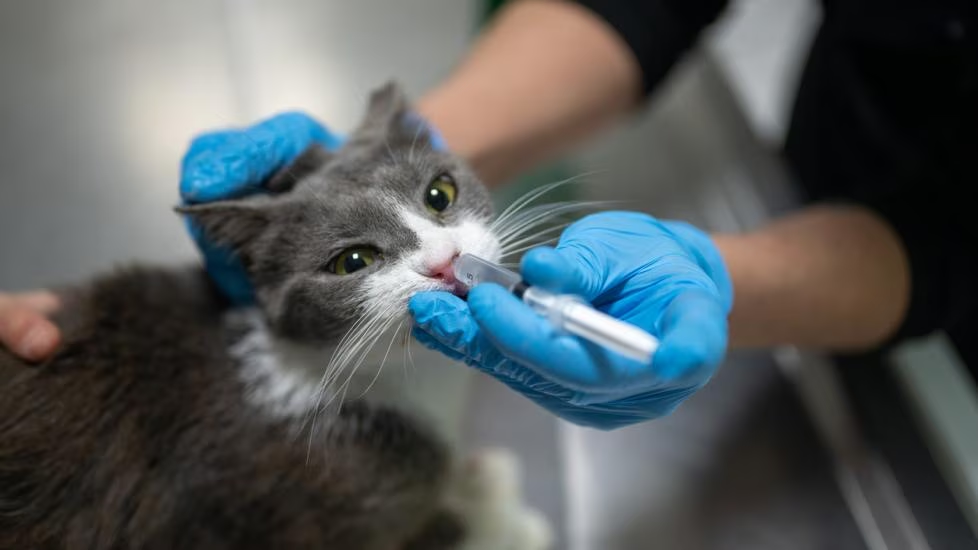Have you wondered, “Why does my cat sound congested or wheezing?” It’s not just a quirky behavior; these noises could indicate underlying health issues.
From common colds to more serious conditions like asthma or heart disease, various factors can cause your feline friend to sound congested.
As a pet owner, you should be aware of the causes of cat congestion, identify warning signs to watch for, and know when to seek veterinary care.
Why Does My Cat Sound Congested?
Normal Breathing Rate in Cats
A healthy cat breathes quietly and smoothly.
- Normal rate: 20–30 breaths per minute
- Noises: Breathing should be silent.
- Panting: Unusual and often a red flag
If your cat pants or snorts at rest, it’s time to investigate.
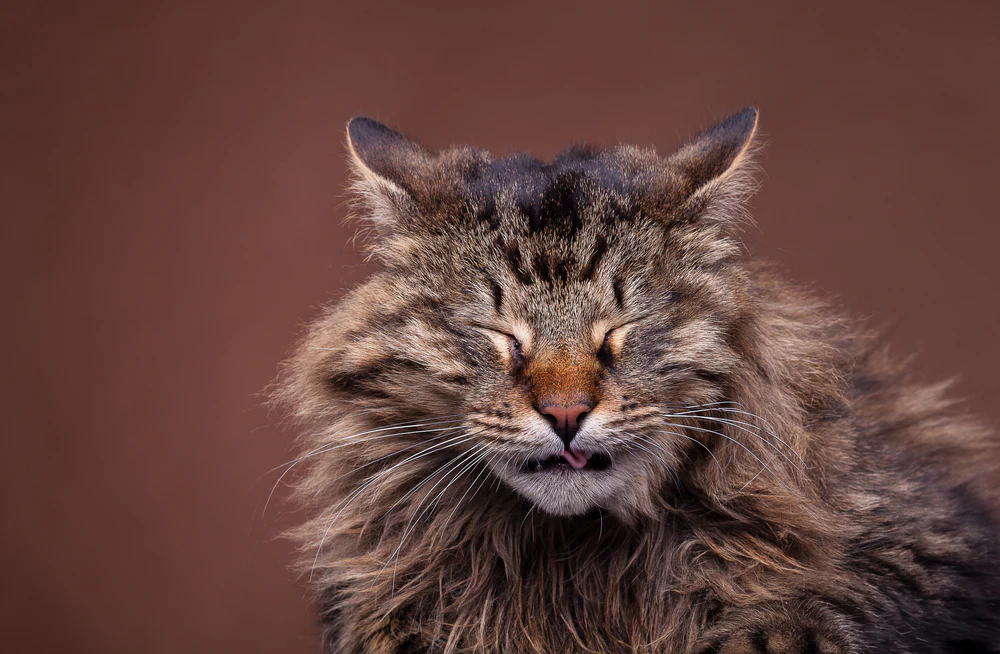
8 Common Causes of Cat Congestion
Several health issues can lead to nasal congestion. Some are simple, others need urgent care.
Here’s a breakdown:
| Cause | Key Symptoms | Risk Level |
| Viral URIs | Sneezing, eye/nose discharge, appetite loss | Moderate |
| Bacterial Infections | Yellow/green mucus, fever, lethargy | Moderate–High |
| Allergies | Clear discharge, sneezing, watery eyes | Mild–Moderate |
| Foreign Bodies | Sudden sneezing, nasal bleeding | Moderate |
| Dental Disease | Bad breath, drooling, and facial swelling | Moderate |
| Nasal Polyps/Tumors | Long-term congestion, breathing difficulty | High (esp. tumors) |
| Asthma | Wheezing, coughing, rapid breathing | High |
| Heart Failure (CHF) | Labored breathing, lethargy, coughing | Emergency |
1-Upper Respiratory Infections (URIs)
URIs are like colds in cats. They are common and contagious, especially in shelters or multi-cat households.
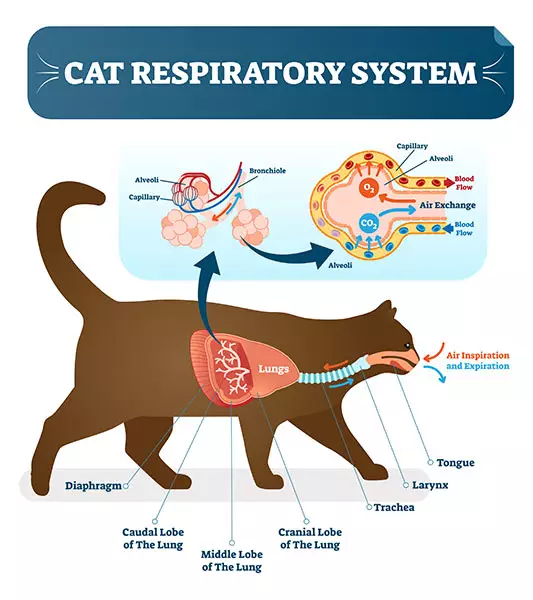
Caused by viruses like:
Solution: Secondary bacterial infections may follow. Signs include sneezing, congestion, and crusty eyes. URIs often clear up on their own, but severe cases may require antibiotics or antivirals.
2-Chronic Rhinitis and Sinusitis in Cats
Chronic inflammation of the nose and sinuses can often follow a urinary tract infection (URI). These conditions are painful and persistent.
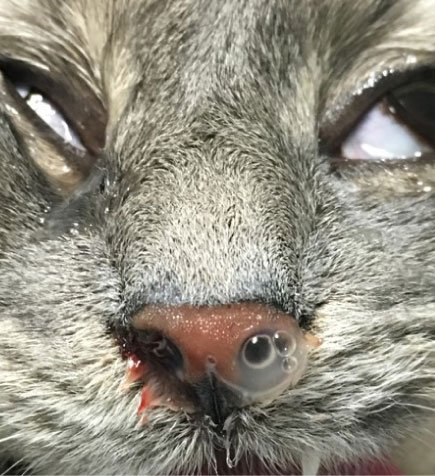
Symptoms include:
- Thick nasal discharge
- Snoring or noisy breathing
- Pawing at the face
Solution: Treatment may involve decongestants, antibiotics, or anti-inflammatory meds.
3-Allergies and Environmental Irritants
Allergies can cause your cat to sound congested. Common triggers:
- Pollen
- Dust mites
- Cigarette smoke
- Perfumes or cleaning sprays
Solution: Reducing exposure helps. An air purifier can improve indoor air quality.
4-Foreign Objects in the Nose
Cats sometimes ingest small objects, such as grass or lint.
Watch for:
- Sudden sneezing fits
- Nasal discharge (may be bloody)
- Face rubbing
Solution: A veterinarian may need to remove the object manually.
5-Dental Issues Causing Congestion
Infections in the upper jaw can spread to the nasal passages.
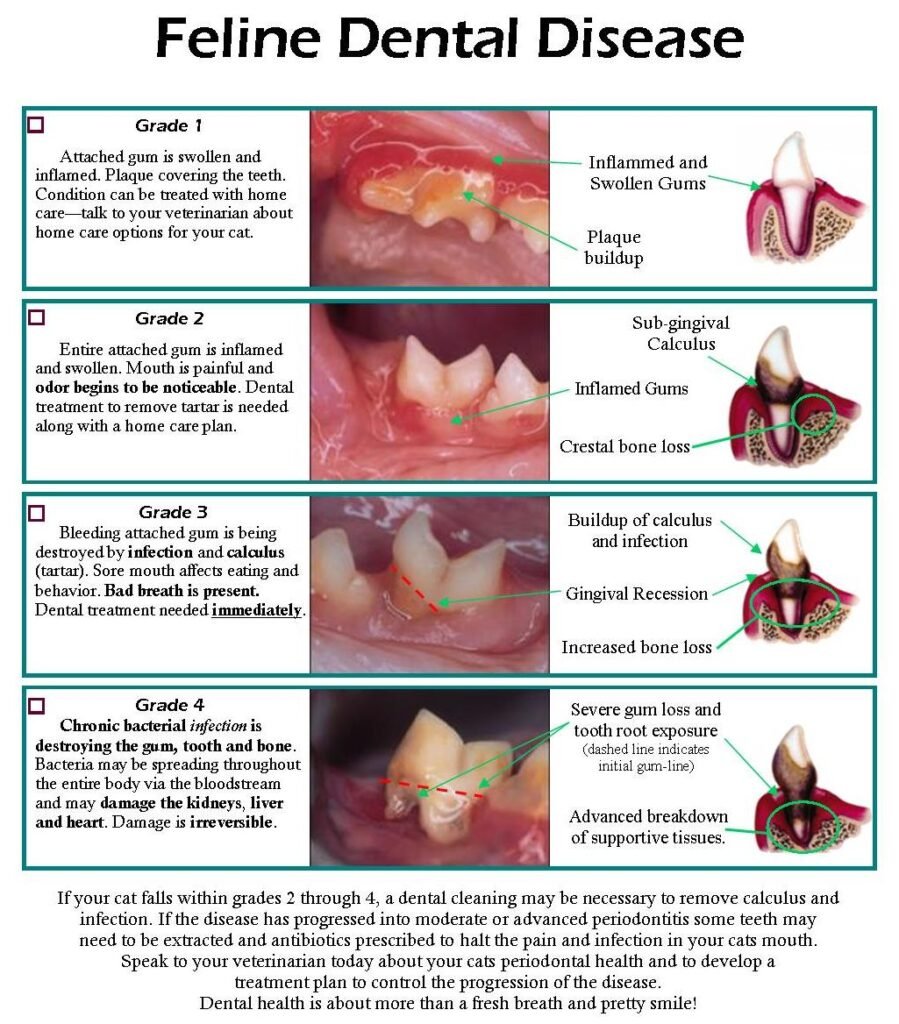
Look for:
- Bad breath
- Drooling
- Gum inflammation
Solution: A dental exam and X-rays can confirm the issue.
6-Growth in the Nasal Passage
Polyps or tumors block airflow, leading to long-term congestion.
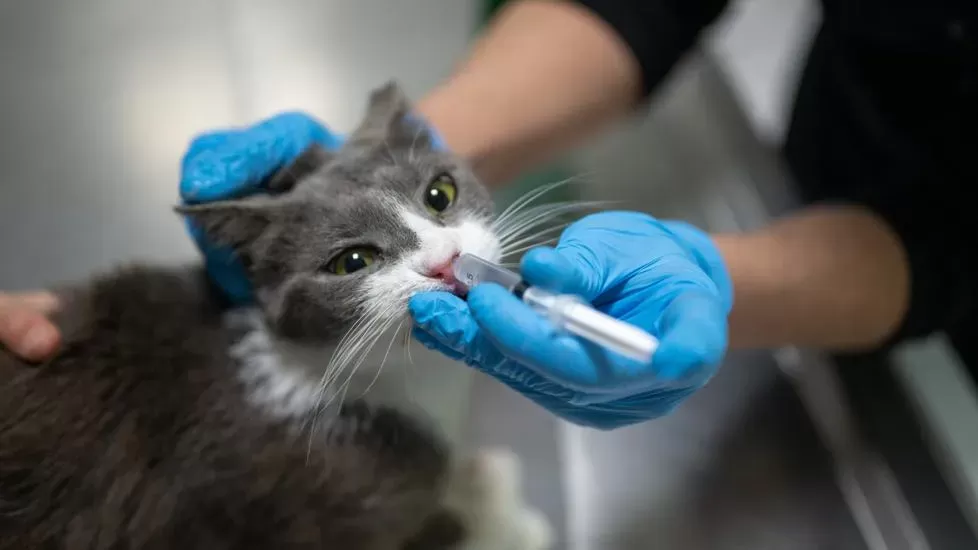
They are more likely in older cats. Symptoms include:
- One-sided nasal discharge
- Noisy breathing
- Decreased sense of smell
Solution: Diagnosis requires imaging or biopsy. Surgery may be needed.
7-When Congestion Comes with Wheezing
Wheezing, combined with congestion, suggests a problem with the lower airways or the heart.
| Condition | Signs to Watch For |
| Asthma | Wheezing, coughing, difficulty exhaling |
| Bronchitis | Wet cough, tiredness, and nasal discharge |
| Pneumonia | Rapid breathing, fever, refusal to eat |
| Heartworm Disease | Coughing, weight loss, trouble breathing |
Solution: Asthma often responds well to inhalers or steroids.
8- Could It Be Heart Failure?
Congested breathing might mean Congestive Heart Failure (CHF).
In CHF, the heart can’t pump well, causing fluid buildup.
Symptoms of congestive heart failure in cats:
- Open-mouth or rapid breathing
- Lethargy
- Loss of appetite
- Blue-tinged gums
Common Cause: Hypertrophic Cardiomyopathy (HCM)
Solution: Early diagnosis with an ultrasound can extend your cat’s life.
Congestion or Purring? How to Tell
Some purrs sound raspy or heavy. It can be mistaken for congestion.
Congestion could give the following signs:
- Gurgling sounds during rest
- Labored chest movement
- Lethargy or reduced appetite
Knowing your cat’s usual purr helps you notice changes early.
Cat Sneezing and Congested at the Same Time
Sneezing helps expel irritants. But if paired with congestion, it usually means:
- Viral infection (clear mucus)
- Bacterial infection (thick, yellow, or green mucus)
- Allergies (intermittent, clear mucus)
If symptoms worsen or persist for more than a few days, contact your veterinarian.
When to See the Vet?
Get professional help if your cat:
- Breathes with an open mouth
- Has noisy or rapid breathing
- Eats or drinks less than usual
- Shows fatigue or fever
- Has thick or colored discharge
- Wheezes, coughs, or seems in pain
Don’t wait. Breathing problems can turn serious fast.
See More topics on >>> Cat Health and Wellness
Home Care Tips (Before the Vet Visit)
While you wait for your vet appointment:
- Keep your cat warm and calm
- Use a humidifier or steam from a hot shower
- Offer strong-smelling food (like tuna)
- Wipe nasal discharge with a soft cloth
- Avoid strong cleaners or smoke
Keep a close eye on their energy level and breathing.
Final Thoughts
Cat congestion isn’t always severe, but it shouldn’t be ignored.
A mild infection can become severe if left untreated.
If symptoms change or worsen, take action promptly.
Prompt care helps your cat recover and breathe easily again.
FAQs
Why does my cat sound congested when breathing?
Cats may sound congested due to upper respiratory infections, allergies, or nasal obstructions. If your cat exhibits persistent congestion, consult a veterinarian for a proper diagnosis and treatment.
Can cats get colds like humans?
Yes, cats can contract upper respiratory infections that resemble human colds, caused by viruses like FHV-1 and FCV. Symptoms include sneezing, nasal discharge, and lethargy.
What home remedies can help a congested cat?
Providing a humid environment, ensuring proper hydration, and gently cleaning nasal discharge can offer relief. However, always consult a veterinarian before trying home remedies
When should I take my cat to the vet for congestion?
Seek veterinary attention if your cat has difficulty breathing, refuses to eat, or if congestion persists beyond a few days.
Is cat congestion contagious to other pets?
Some causes of cat congestion, such as viral infections, are infectious to other cats. Isolate affected cats and consult a vet for guidance.
Can allergies cause congestion in cats?
Yes, cats can develop allergies to substances such as pollen, dust, or smoke, which can lead to nasal congestion and sneezing.
How is feline asthma diagnosed and treated?
Veterinarians diagnose asthma through clinical signs and diagnostic tests. Treatment often involves the use of corticosteroids and bronchodilators to manage symptoms.
